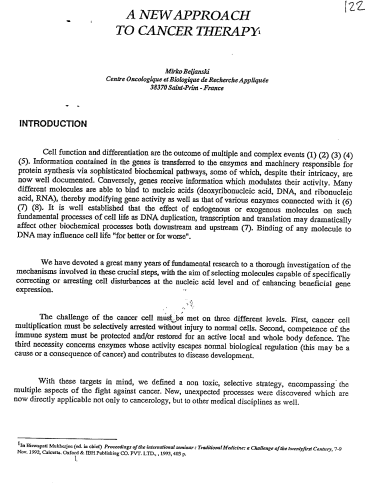Proceedings of the international seminar: Traditional Medicine: a Challenge of the 21st Century, 7-9 Nov. 1992, Calcutta (ed. in chief Biswapati Mukherjee).
Available in English only
ABSTRACT: Cell function and differentiation are the outcome of multiple and complex events. Information contained in the genes is transferred to the enzymes and machinery responsible for protein synthesis via sophisticated biochemical pathways, some of which, despite their intricacy, are now well documented. Conversely, genes receive information which modulates their activity. Many different molecules are able to bind to nucleic acids (deoxyribonucleic acid, DNA, and ribonucleic acid, RNA), thereby modifying gene activity as well as that of various enzymes connected with it. It is well established that the effect of endogenous or exogenous molecules on such fundamental processes of cell life as DNA duplication, transcription and translation may dramatically affect other biochemical processes both downstream and upstream. Binding of any molecule to DNA may influence cell life “for better or for worse”.Voir le document
Partager
uncode-placeholder




